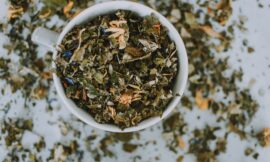Harmful Side-effects of Tea
While tea has many health benefits, excessive consumption or certain types of tea can have some harmful effects also. Here are some potential negative side-effects of tea:
- Caffeine-related side effects:
Tea, especially black and green tea, contains caffeine, which can cause side effects in some individuals, particularly when consumed in large quantities. These side effects may include insomnia, restlessness, increased heart rate, headaches, and digestive issues. - Iron absorption:
Tea contains tannins, which can interfere with the absorption of non-heme iron (the type of iron found in plant-based foods). This can be a concern for individuals with iron deficiency or those who rely on plant-based sources of iron. To minimize this effect, avoid drinking tea with meals or wait at least an hour after eating to consume tea. - Tooth staining:
Black tea, in particular, can cause staining of the teeth due to its high content of tannins. To reduce the risk of staining, consider drinking tea through a straw, rinsing your mouth with water after drinking tea, or brushing your teeth regularly. - Heavy metals:
Some tea leaves, especially those grown in polluted areas, can accumulate heavy metals like lead, arsenic, and cadmium. Consuming tea with high levels of heavy metals can have negative health effects over time. To minimize this risk, choose high-quality tea from reputable sources and avoid consuming excessive amounts of tea. - Pesticide residues:
Some tea leaves may contain pesticide residues, which can be harmful when consumed in large quantities. To reduce exposure to pesticides, opt for organic tea or tea from brands that follow strict quality control measures. - Drug interactions:
Tea, particularly green tea, can interact with certain medications, such as blood thinners, chemotherapy drugs, and some antibiotics. If you are taking any medications, consult your healthcare provider before consuming large amounts of tea.
Other disadvantages of Tea
There are a few other potential disadvantages of consuming tea, including acidity and other digestive issues. Here are some additional concerns:
- Acidity:
Tea, especially black tea, can be acidic due to its tannin content. For some individuals, consuming acidic beverages like tea may contribute to acid reflux or exacerbate existing gastroesophageal reflux disease (GERD) symptoms. If you experience heartburn or other symptoms of acid reflux after drinking tea, consider reducing your intake or switching to a less acidic tea, such as herbal tea or green tea. - Digestive issues:
The tannins in tea can sometimes cause digestive issues, such as constipation or stomach cramps, particularly when consumed in large quantities or on an empty stomach. To minimize these effects, try drinking tea with a meal or snack, or opt for a tea with lower tannin content, like green or white tea. - Bone health:
Some studies have suggested that excessive tea consumption, particularly in individuals with low calcium intake, may be associated with a higher risk of osteoporosis or reduced bone mineral density. However, the evidence is not conclusive, and moderate tea consumption is unlikely to have a significant impact on bone health for most people. To support bone health, ensure you consume adequate calcium and vitamin D through your diet or supplements. - Anxiety and sleep disturbances:
As mentioned earlier, tea contains caffeine, which can cause anxiety and sleep disturbances in some individuals, particularly when consumed in large quantities or close to bedtime. If you are sensitive to caffeine or have trouble sleeping, consider reducing your tea intake, switching to a lower-caffeine tea like green or white tea, or opting for caffeine-free herbal teas.
As with any food or beverage, moderation is key when it comes to tea consumption. Most people can enjoy the health benefits of tea without experiencing significant negative effects by consuming it in moderate amounts and paying attention to their body’s reactions. If you have concerns about your tea consumption or experience adverse effects, consult your healthcare provider for personalized advice.




